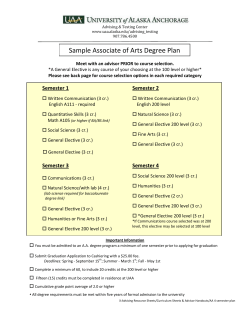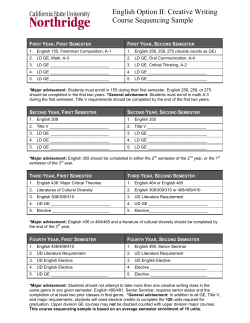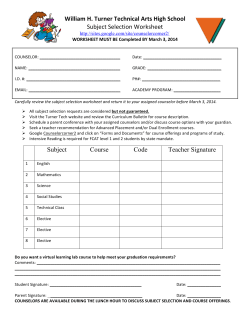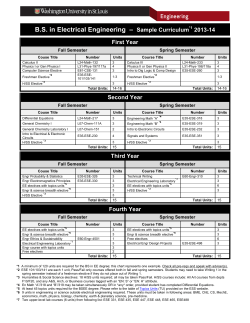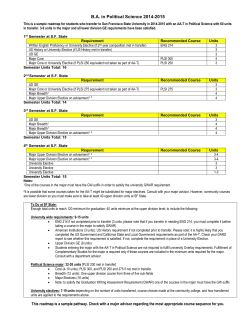
BAIR - USC Marshall Current Students
Marshall Undergraduate Business Administration Program with emphasis in International Relations BS in BAIR sample four-year course plan Freshman Semester 1 Semester 2 Sophomore Semester 3 Semester 4 BUAD 285b/286b MATH 118 BUAD 310 Fund. Principles of Calculus (4) Applied Business Statistics (4) BUAD 285a/286a Accounting I (4) BUAD 307 WRIT 150 ECON 351x ECON 352x Writing & Critical Reasoning (4) Microeconomics for Business (4) Macroeconomics for Business (4) Organizational Behavior and Leadership (4) GE 5 GE (4) Arts & Letters (4) Marketing Fundamentals (4) BUAD 302 GE (4) Senior Semester 5 Semester 6 Semester 7 BUAD 311 BUAD 497 Operations Management (4) Strategic Management (4) Data Analysis for Decision Making (2) BUAD 306 Marshall Elective Business Finance (4) Communication Strategy in Business (4) BUAD 304 GE (4) Accounting II (2) Junior (4) Optional Optional Optional Free Elective (BUAD 105) (2) Free Elective (GLP/LINC) (2) Free Elective (BUAD 252) (2) Free Elective/ Minor (0-4) Marshall Elective Marshall Elective (4) (4) Diversity (4) (4) WRIT 340 IR Elective Advanced Writing for Business (4) IR Economy Course (4) Int’l Relations: Introductory Analysis BUAD 425 GE (4) GE (4) IR 210 Semester 8 (4) IR Elective (4) IR Regional Course (4) IR Regional Course (4) Free Elective/ Minor (0-4) Free Elective / Minor (4) Total units = 128-134 Updated DMM 7/29/14 Bachelor of Science Business Administration Understanding Business and its Internal and External Contexts Macroeconomics* Microeconomics* GEs & Diversity LINC/GLP Understanding Business Functions and Processes Communication, Reasoning and Decision Making Skills Statistics* WRIT 150 GEs Organizational Behavior GEs & Diversity Minor GEs & Diversity IEP Minor Managerial & Financial Accounting* Finance Operations Marketing Business Communication GEs Business Strategy Writing 340 GEs Minor Business Electives IEP Data Analysis for Decision Making * Designates foundational course MARSHALL LEARNING OBJECTIVES Our graduates will: • Have an understanding of the key business areas and their interplay to effectively manage different types of modern enterprise. • Have a global mindset demonstrating an understanding of the interplay of local, regional, and international markets, and economic, social and cultural issues. • Demonstrate critical thinking skills, decision-making, and problem-solving abilities to strategically navigate complex demands of business environments. • Demonstrate leadership skills aspiring to be informed, sensible, future-oriented leaders and innovators. • Demonstrate ethical reasoning skills, understand social, civic, and professional responsibilities and aspire to add value to society. • Effectively communicate in speaking and writing to facilitate information flow in organizational, social, and intercultural contexts.
© Copyright 2025
